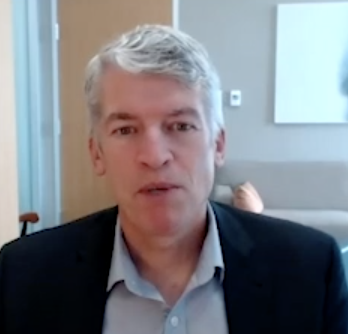Where Do Potent P2Y12 Inhibitors Fit Into Current Practice? - Stroke Prevention
Published: 27 February 2023
-
Views:
 9601
9601
-
Likes:
 7
7
-
Views:
 9601
9601
-
Likes:
 7
7
-
 17m 6sPart 5 | Session 1 Case Studies
17m 6sPart 5 | Session 1 Case Studies -
 12m 58sPart 5 | Session 2 Panel Discussion: What Approach for These Patients?
12m 58sPart 5 | Session 2 Panel Discussion: What Approach for These Patients?
Overview
This broadcast series 'Where Do Potent P2Y12 Inhibitors Fit Into Current Practice?' will reappraise potent P2Y12 inhibitors, as evidence accumulates to support their broader use. At this juncture, there is still some uncertainty around patient selection, initiation and long-term management.
The fourth, and final, broadcast in this series, focused on Stroke Prevention. In this on-demand version of the live broadcast, Radcliffe Medical Education bring together a global faculty of experts in the field to look at current guidance, the landmark data, gaps in evidence and seek to provide practical guidance.
Prof Clay Johnston (Harbor Health, Texas, US) chairs the proceedings, and is joined by Prof Philippe Gabriel Steg (Hospital Bichat-Claude Bernard, Paris, FR), Dr Shelagh Coutts (University of Calgary, CA) and Prof Jesse Dawson (University of Glasgow, UK) for a series of insightful presentations and discussions.
You can also catch up on previous broadcasts in this series:
Key Learning Objectives
- Recall recent trial data for antiplatelet therapies in secondary stroke prevention
- Apply clinical judgement and trial data to develop optimal antiplatelet strategies in noncardioembolic stroke and TIA
- Use guidance and recent trial data to formulate optimal antiplatelet strategies in large artery atherosclerosis
- Confidently prescribe potent antiplatelet therapies by balancing ischaemic and bleeding risk
Target Audience
- Neurologists
- General Cardiologists
- Interventional Cardiologists
More from this programme
Part 1
Potent Antiplatelets in Secondary Stroke Prevention: Where Do They Fit In?
Prof Clay Johnston provides an overview of the current guidance around the use of antiplatelet therapy in secondary stroke prevention.
Part 2
Potent P2Y12 Inhibitors in Large Artery Atherosclerosis: Which Patients Benefit?
Dr Shelagh Coutts focuses on large artery atherosclerosis and the clinical evidence behind potent P2Y12 inhibitors in this population.
Part 3
Risk Stratification in Secondary Stroke Prevention
Prof Jesse Dawson discusses the impact of genetics and race on outcomes, assessing the current requirement for genetic testing in specific patients.
Part 4
Balancing Ischaemic and Bleeding Risk: Insights From Cardiology
Prof Philippe Gabriel Steg provides insight into balancing risk through the eyes of a cardiologist.
Part 5
Antiplatelet Strategies in Non-cardioembolic Ischaemic Stroke & TIA
Prof Jesse Dawson and Dr Shelagh Coutts each present a patient. Following this, the panel discuss treatment strategies for both, as well as answering audience questions.
Faculty Biographies

Clay Johnston
Prof Clay Johnston is Co-Founder and Chief Medical Officer at Harbor Health, Texas, US.
Previously, Prof Johnston was the inaugural Dean of The University of Texas at Austin Dell Medical School where he strived to advance a new model of better health care. He also served as a Professor of Neurology at the University of Texas at Austin and an Adjunct Professor of Neurology at the University of California, San Francisco. During his time at the University of California, Prof Johnston was Founding Director of the Center for Healthcare Value and was Associate Vice Chancellor of Research. Most of his research focuses on stroke care.





